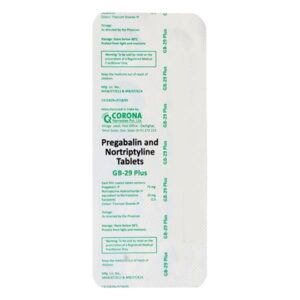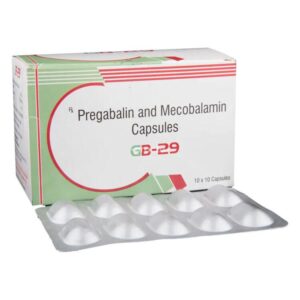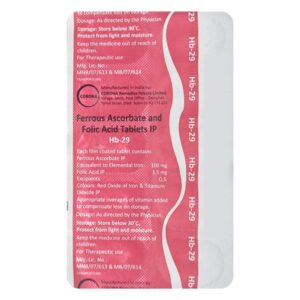FOLIC ACID + CARBONYL IRON + ASCORBATE
Folic Acid: Folic Acid, also known as folate or vitamin B9, is a water-soluble vitamin that plays a crucial role in many important bodily functions. It is primarily used to supplement dietary deficiencies, support prenatal health, and treat certain medical conditions.
Folic Acid is essential for the synthesis and repair of DNA and RNA, the formation of red blood cells, and the metabolism of amino acids. It is particularly important during periods of rapid cell growth and division, such as pregnancy and infancy. Folate deficiency can lead to various health problems, including anemia, birth defects, and cardiovascular diseases.
The recommended daily dose of Folic Acid varies based on individual needs. For most adults, the recommended daily intake is approximately 400 micrograms (mcg). However, during pregnancy, the dose may be increased to 600-800 mcg to support fetal development.
Side effects of Folic Acid are rare when taken in appropriate doses. However, high doses (above 1000 mcg) may cause nausea, digestive issues, and skin reactions. It is important to consult a healthcare professional before starting any new medication or supplement, especially if you have any underlying medical conditions or are taking other medications.
While Folic Acid is generally safe, it may interact with certain medications. For example, it can interfere with certain chemotherapy drugs and anti-seizure medications. It is essential to inform your healthcare provider about all the medications you are taking to avoid any potential interactions.
Overall, Folic Acid is a vital nutrient that plays a crucial role in many essential bodily functions. It is commonly used to prevent and treat folate deficiency, support prenatal health, and improve overall well-being. However, it is important to follow the recommended dosage guidelines and consult a healthcare professional for personalized advice.
Carbonyl Iron: Carbonyl Iron is an oral iron supplement that is used to treat iron deficiency anemia, a condition characterized by low levels of red blood cells due to insufficient iron in the body. It is commonly prescribed when dietary measures alone are insufficient to correct the iron deficiency.
The mechanism of action of Carbonyl Iron is quite simple. Iron is an essential mineral involved in the production of hemoglobin, the protein responsible for carrying oxygen in the blood. Carbonyl Iron supplies the body with a source of elemental iron, which is absorbed through the gastrointestinal tract and utilized for the synthesis of hemoglobin. This helps to replenish iron stores in the body and improve symptoms associated with iron deficiency anemia.
The optimal dosage of Carbonyl Iron varies depending on the individual’s age, severity of iron deficiency, and other medical conditions. It is typically recommended to take Carbonyl Iron on an empty stomach, as taking it with food can reduce its absorption. A typical dose for adults is around 100-200 mg per day, divided into two or three doses. However, it is important to follow the instructions provided by the healthcare provider and not exceed the prescribed dosage.
As with any medication, Carbonyl Iron can cause side effects. Common side effects may include gastrointestinal discomfort such as stomach pain, nausea, vomiting, constipation, or diarrhea. These side effects are usually mild and may subside with continued use. In some cases, Carbonyl Iron may cause darkening of the stools, but this is harmless and should not be a cause for concern.
It is important to note that Carbonyl Iron should not be used without a proper diagnosis of iron deficiency anemia. Taking iron supplements unnecessarily can lead to iron overload, which can have serious health consequences. Therefore, it is crucial to consult with a healthcare professional before starting Carbonyl Iron or any other iron supplement.
Ascorbate: Ascorbate, also known as vitamin C, is a water-soluble vitamin that is essential for the proper functioning of the body. It is commonly found in fruits and vegetables and is also available as a dietary supplement.
Use:
Ascorbate is primarily used to prevent or treat vitamin C deficiency. It is necessary for the growth, development, and repair of body tissues. Additionally, ascorbate is known for its antioxidant properties, which help protect cells from damage caused by free radicals.
Mechanism of action:
Ascorbate acts as a cofactor in various enzymatic reactions in the body, playing a vital role in collagen synthesis, iron absorption, and the immune system. It also helps regenerate other antioxidants in the body, such as vitamin E.
Dose:
The recommended daily intake of ascorbate varies depending on age, sex, and specific conditions. For most adults, the recommended daily dose is between 75-120 mg, but higher doses may be required for individuals with certain medical conditions or during times of increased oxidative stress. It is important to follow the recommended dosage provided by a healthcare professional or the instructions on the supplement packaging.
Side effects:
Ascorbate is generally safe when taken in recommended doses. However, extremely high doses (over 2000 mg per day) may cause gastrointestinal discomfort, including diarrhea, abdominal cramps, and nausea. Individuals with a history of kidney stones should exercise caution when taking high doses of ascorbate, as it may increase the risk of stone formation. Allergic reactions to ascorbate are rare but can occur in some individuals.
It is crucial to seek medical advice before starting any new supplement, especially if you have any pre-existing medical conditions or are taking other medications, as interactions may occur.



